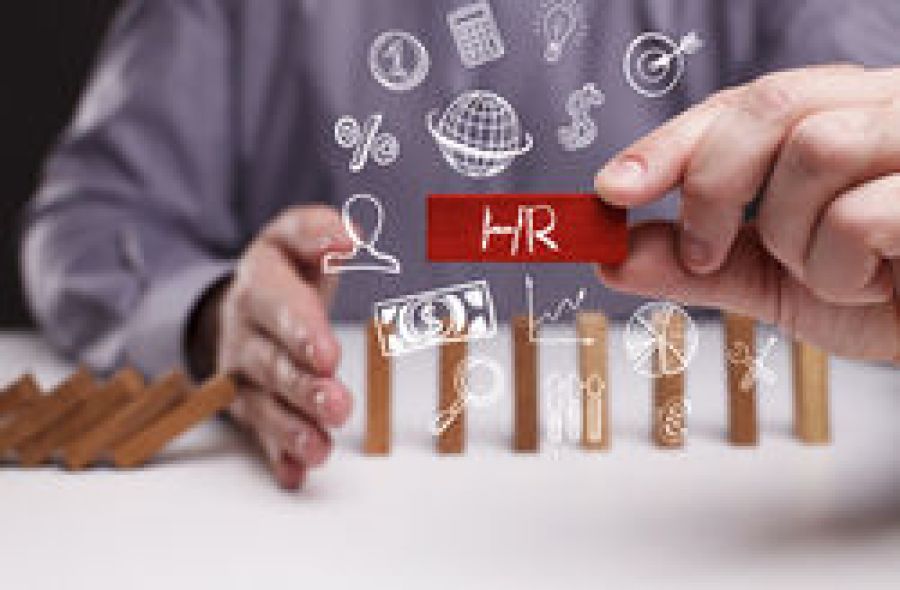Blog

Blog
Call us today for a free initial consultation on 0800 772 0341
How HR can help managers
Published 08 April 2019


The role of HR in helping managers to manage.
A good working relationship between managers and human resources (HR) is crucial in the effective running of any business.
While the responsibilities of a manager are widely seen as ensuring the good day-to-day running of operations and the management of people, they also have an important role to play in implementing HR policies.
A positive working relationship between managers and HR (1) will support any business strategy.
For many employees a manager is the accessible face of an organisation, and direct contact with HR is likely to only occur when things go wrong.
HR is seen by many as a trusted adviser for both management and staff, but others see it as the stubborn defender of the employer in any workplace dispute.
The latter view was supported by previous research that listed five reasons why employees hate HR, which included: HR employees are incompetent, dishonest, has only the company and management’s interests in mind, not objective and fair and too involved in office politics. (2)
The criticism is harsh, and certainly not true of all HR professionals. It is the job of HR to make certain that line managers are fully supported in their role and updated on the organisation’s people management policies and exactly what is expected in implementing them.
Managers therefore need to be fully equipped with the skills, knowledge and tools to succeed. It is for HR to help to create a working environment in which good managers can thrive and get the most out of employees.
HR should set out what exactly is expected, and can be expected, of managers. This will help to ensure that both managers and employees understand the role of leaders within an organisation.
Effective organisational support will help the best managers to flourish and reach their full potential, which is imperative in the success of any business.
There are a number of ways in which HR can help managers in the modern workplace.
Mangers come in all shapes and sizes, with diverse personalities and differing skillsets.
Arsene Wenger (3), the long-serving former football manager of Arsenal, is once quoted as saying “A manager is a guide. He takes a group of people and says ‘with you I can make us a success’; I can show you the way.”
The best managers can be inspiring leaders but they also need a good team behind them, and to know when to consult with their trusted advisors if something is not working.
This is where the role of HR is important in helping to develop the strategic capabilities of managers, and in ensuring that they have a clear understanding of an organisation’s structure, processes and design.
Such knowledge will help managers to confidently evaluate the effect of any decisions they make and also to introduce effective plans that may reap rewards for an employer in the long-run.
These are uncertain and challenging times for many businesses, especially on our high streets where 6,000 shops closed in 2017 (4)
It means managers need to be able to adapt and pursue organisational redesigns. HR can play a crucial role in helping the leaders in any organisation to embrace and understand any necessary changes.
It is generally accepted that the best resource in any enterprise is the employees, and investment in their learning and development is encouraged.
The best performing businesses are putting employee learning and development at the heart of their strategy.
The UK L&D Report 2018 revealed that 94 per cent of the best performers surveyed say learning and development is critical to success (5). As a result they enjoyed the lowest turnover of staff.
Poor managers can have a damaging impact on staff morale, performance, and ultimately the profitability of a business.
There is a general perception that there is a stark contrast in older employees and millennials (6) in their approach to work. This calls for a balanced approach from managers to make sure they get the best out of all workers.
HR has a key role to play in producing and developing leaders, and convincing them of the importance of performance management, employee development and organisational culture.
References
1. What do human resources do? [Internet] Unum.co.uk [Cited 8.4.19] https://www.unum.co.uk/hr/what-does-human-resources-do-and-when-do-you-need-them
2. Reasons why employees hate HR [Internet] The balance careers [Cited 8.4.19] https://www.thebalancecareers.com/reasons-why-employees-hate-hr-1917590
3. Arsene Wenger [Internet] Premier League [Cited 8.4.19] https://www.premierleague.com/managers/1137/Ars%C3%A8ne-Wenger/overview
4. 6,000 shops close in tough year [Internet] The Guardian [Cited 8.4.19] https://www.theguardian.com/business/2018/apr/11/tough-year-high-street-internet-shopping-weak-pound
5. The UK L&D Report 2018 [Internet] www.findcourses.co.uk [Cited 8.4.19] https://www.findcourses.co.uk/file/1627/download
6 What is a millennial? [Internet] Metro.co.uk [Cited 8.4.19] https://metro.co.uk/2017/09/20/what-is-a-millennial-6942535/
“A reputation built on success”
For free employment law advice or if you are affected or want information and support by any of the issues in this article please give us a call. 0333 772 0611
A reputation built on success
If you're facing any of the issues in this article - or need guidance on disciplinary, grievance, or redundancy matters - call us today. Our expert Trade Union Representatives are available to represent you in crucial workplace meetings, with pay as you need support.